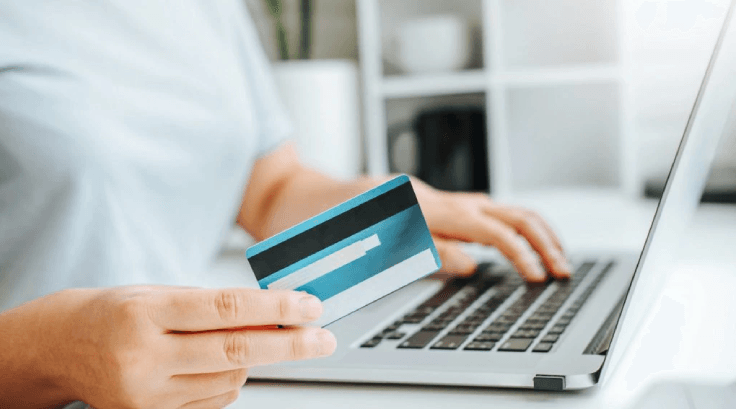
Credit cards can be a valuable financial tool if used properly. However, if they are not used wisely, they can become a source of debt and financial problems.
In this article, we will give you some tips on how to use your credit cards wisely and make the most of their benefits without falling into financial traps.
What is a credit card?
A credit card is a means of payment that allows you to make purchases and obtain credit at the same time. Instead of paying cash or transferring money from a bank account, the card is used to pay for the products or services purchased.
The credit card functions as a loan granted by the card issuer, which agrees to pay the corresponding merchant. The cardholder is responsible for repaying the borrowed money in the form of monthly payments, with interest if it is decided to finance the purchase.
Benefits of using credit cards
- Accumulation of points or miles that can be redeemed for benefits and discounts.
- Security: no need to carry cash in your wallet.
- Flexibility: possibility to pay in installments or to defer payment
- Protection against fraud or unauthorized charges
- Ability to obtain an additional line of credit to meet unforeseen expenses
- Detailed record of expenses incurred, facilitating financial control and organization
How to avoid spending more than you can afford
To use credit cards wisely, it is important to keep in mind some measures to avoid spending more than you can afford. Among them are:
- Set spending limits on the card and stick to them.
- Do not use the card to acquire unnecessary goods and services.
- Keep a constant follow-up of expenses and payments.
- Do not get into debt beyond what you can pay monthly.
- Look for offers and promotions that allow you to save money on card purchases.
Establish a monthly spending limit
One way to avoid falling into the debt trap is to set a monthly spending limit on your credit card. This way, you will have control over your spending and will not spend more than you can afford at the end of the month.
To establish this limit, it is important that you take into account your monthly income and your fixed expenses. You must determine how much money you need to cover these expenses and how much you can allocate to your credit card. Once you have this figure, set the limit on your card.
Remember that setting a limit does not mean you have to spend it all. It is always advisable to have a safety margin and not spend more than 70% of the established limit.
Do not use your credit card for unnecessary purchases.
One of the main recommendations for using credit cards wisely is to avoid making unnecessary purchases. While it is true that plastic can offer great convenience when making payments, it is also true that it can be dangerous if it is abused.
For this reason, it is essential to be clear that the credit card should not be used to make impulse purchases or to acquire goods and services that are not really necessary.
Before using the card to make a purchase, it is important to stop and think about whether the product or service is really needed. On many occasions, we can find cheaper or even free alternatives that allow us to satisfy our needs without having to resort to the use of the credit card.
In addition, we must remember that every time we use the credit card we are accumulating interest and additional charges, which can end up becoming a huge financial burden in the long run. For this reason, it is best to use it wisely and only for those purchases that are really essential and within the available budget.
Pay the full balance each month
One of the best ways to use a credit card is to pay your balance in full each month. This not only helps you avoid interest and late fees, but also helps you maintain a good credit history.
If you can't pay your balance in full each month, be sure to make at least the minimum payment by the due date. Otherwise, you could incur late fees and interest, which increases the total cost of your purchase. Remember that your payment habits are reflected in your credit history and can affect your credit score, which is important if you plan to apply for loans or financing in the future.
How to take advantage of credit card benefits
Credit cards can be a very useful financial tool if used wisely. Here are some tips to help you make the most of their benefits:
- Know the benefits: Credit cards usually offer different types of benefits, such as mileage accrual, discounts on purchases and insurance. Learn about the benefits offered by your card and use them to your advantage.
- Always pay on time: One of the greatest benefits of credit cards is that they allow you to make purchases and pay for them later. However, if you don't pay on time, interest rates can be very high and you will end up paying much more for your purchases. It is important that you always pay in full or at least the minimum payment by the due date.
- Don't spend beyond your means: Credit cards are not an extension of the money you have available. It is important to establish a monthly budget and make sure you do not spend beyond your means. If you don't control your spending, you could accumulate a large amount of debt.
- Switch to a card with better benefits: If you have had your card for a while and feel that its benefits no longer satisfy you, it may be time to switch to another option that better suits your needs. Also, don't be afraid to negotiate with your bank for better terms or rates.
- Use your card to build credit history: If you are young or have never had a previous line of credit, cards can be a great way to build your credit history. Use your card to make small purchases and make sure you always pay them off in a timely manner.
Accumulate points or miles for travel or store discounts.
One of the most attractive advantages of credit cards are the rewards programs. When you make purchases with your card you accumulate points or miles that you can redeem for travel, hotel stays, store discounts and other benefits.
It is important to carefully read the terms and conditions of these programs, as sometimes they may have restrictions or deadlines for using the accumulated points. It is also advisable to compare different cards and programs to find the one that best suits your needs.
In addition, some banks offer special promotions for new customers, such as welcome bonuses or extra points for purchases made in certain stores or categories. Taking advantage of these offers can be an excellent way to accumulate points faster. Remember also that to really benefit from these programs it is important to always pay your card balance in full on time, as interest and late fees can far exceed the value of the points accumulated.
Insurance and protection on major purchases
One of the main advantages of using a credit card is that many of them offer insurance and protection for major purchases.
Some of these services include:
- Protected purchase insurance: in case the item purchased is damaged or stolen within a specified period, the card may offer compensation to replace the item.
- Trip cancellation: if a vacation is booked with the card and then something happens that prevents travel, the card may reimburse the expenses.
- Medical insurance abroad: some cards offer coverage for medical emergencies while traveling abroad.
It is important to review the specific terms of the insurance offered by each card before using it to purchase major items or book travel. Also, be sure to follow the procedures correctly in case you need to make use of the insurance. In conclusion, using a credit card wisely can not only help you manage your money, but can also offer additional benefits such as insurance and protection.
How to choose the best credit card for you
Before applying for a credit card, it's important to do your homework and find the best option for your needs and spending habits. Here are some things to consider:
- Interest rate: make sure you know the card's annual percentage rate (APR). If you plan to pay off the balance in full eachmonth, then a low rate is not as important, but if you anticipate having an outstanding balance, a high rate can cost you a lot of money in interest.
- Rewards: Some cards offer rewards such as points or miles for every dollar spent. If you use your card frequently and pay off the balance on time, these rewards can be useful for discounts or free travel.
- Annuity: Many cards charge an annual fee to use them. Make sure you know this fee and whether the benefits of the card justify the cost.
- Credit limit: The credit limit you are granted will depend on your credit history and financial capacity. Make sure the limit is high enough for your needs.
- Customer service: Make sure you choose a company with good customer service in case of problems with your card or account.
Take the time to research all available options and compare features and benefits before selecting the best credit card for you. Once you have your card, be responsible with payments and don't spend beyond your financial means.
Annual Percentage Rate (APR)
The annual percentage rate (APR) is the cost charged for borrowing money through a credit card. It is important to understand that the APR is not limited only to purchases made with the card, but also includes other transactions such as cash advances and balance transfers. It is advisable to look for credit cards with a low APR in order to save money on interest. However, it is important to keep in mind that the APR may change over time and may vary depending on the cardholder's financial situation. It is essential to read the terms and conditions carefully before applying for a credit card and consider the APR as one of the important factors when making a decision.
Transaction and Cash Advance Fees
It is important to keep in mind that credit cards often have additional fees for certain transactions, such as foreign purchases, ATM cash withdrawals and balance transfers. These fees may vary depending on the financial institution and the type of card you have.
On the other hand, cash advances also tend to have very high additional fees, making them an undesirable option for quick cash. If you need cash, it is better to consider other alternatives, such as a personal loan or a salary advance.
Additional bonuses and benefits offered by the card
- Rewards programs that accumulate points or miles to redeem for products, services or travel.
- Travel insurance and purchase protection.
- Access to VIP lounges at airports.
- Special interest rates and discounts at partner stores.
- Customer support services available 24/7.






